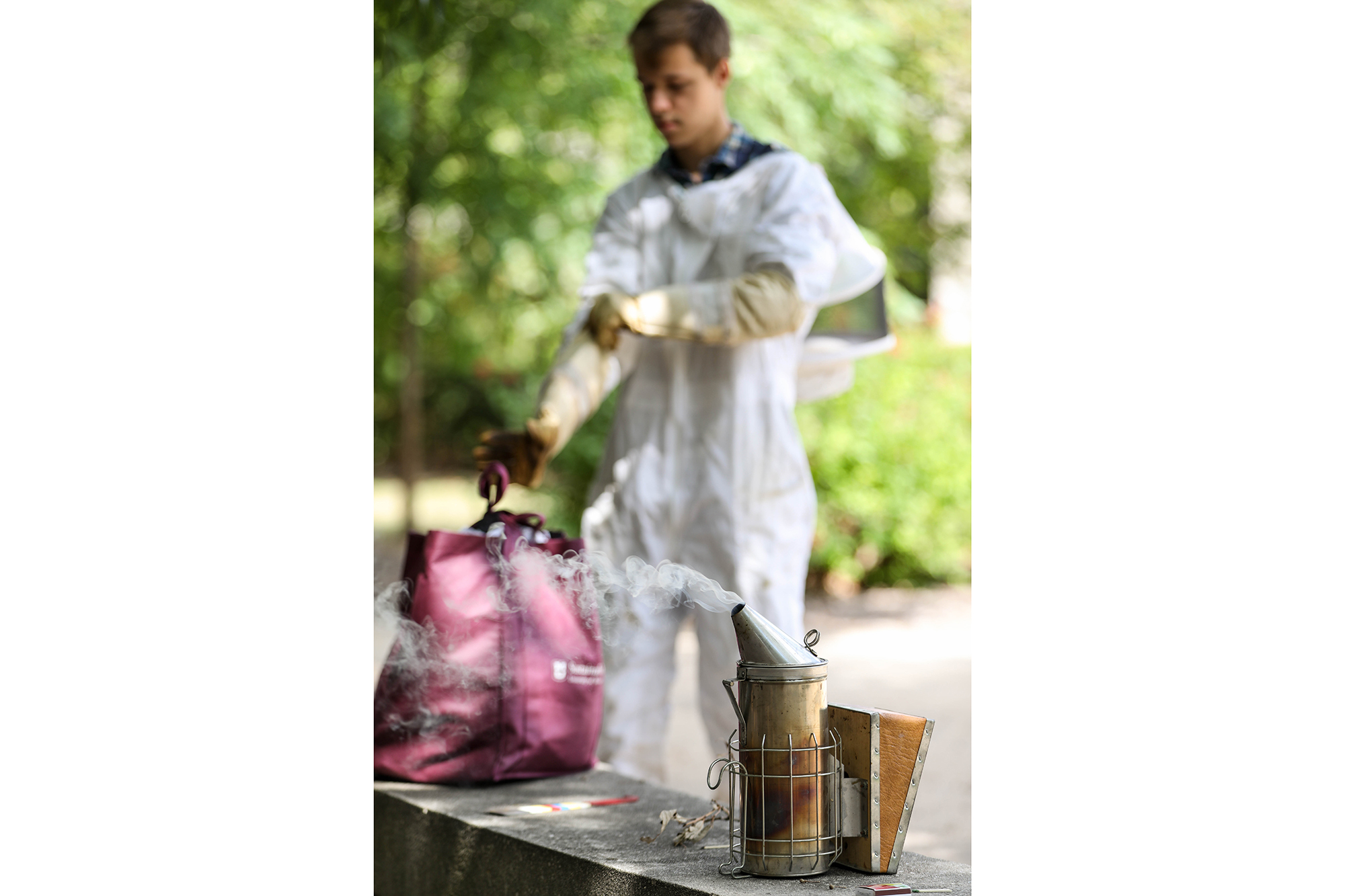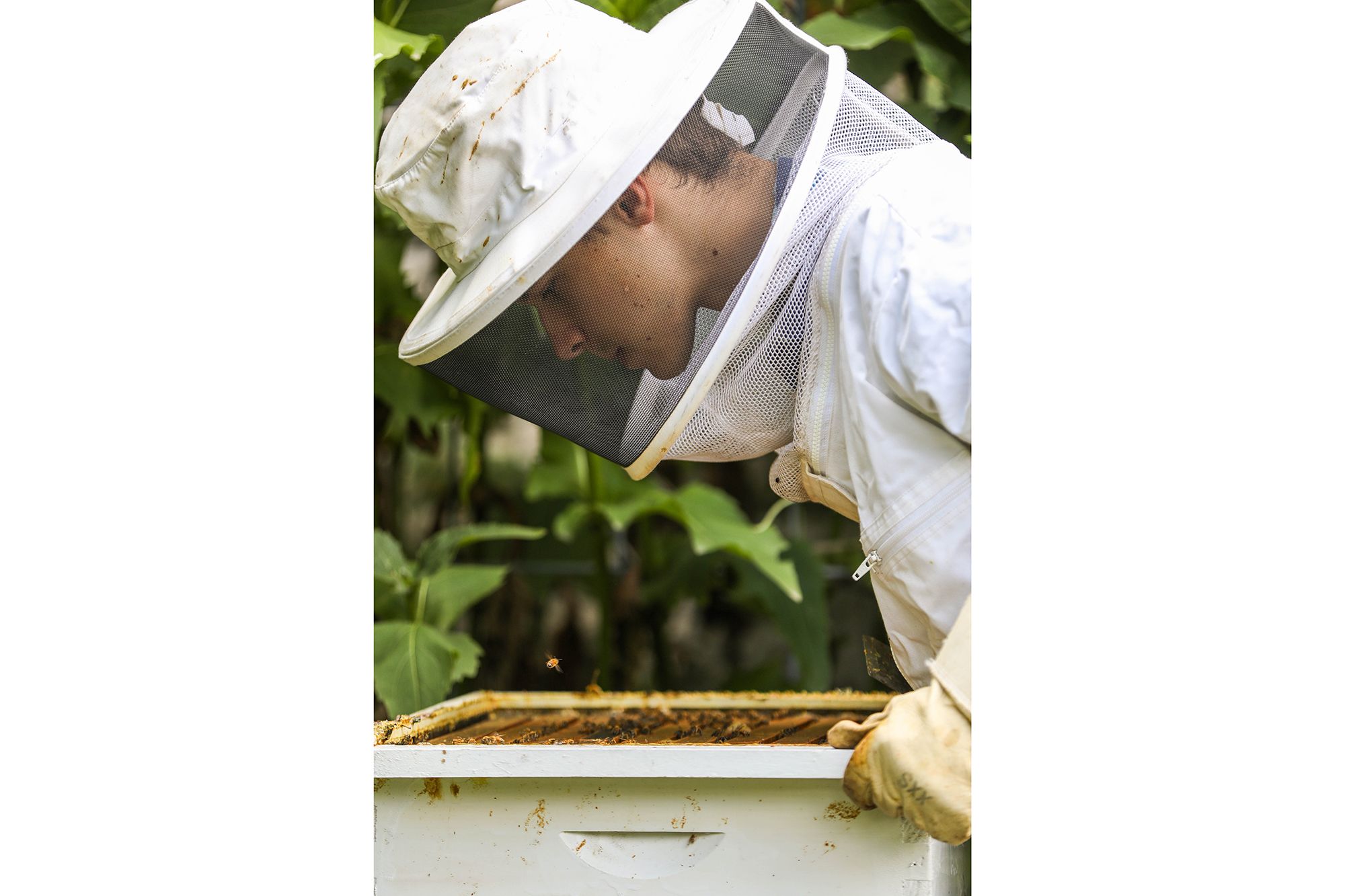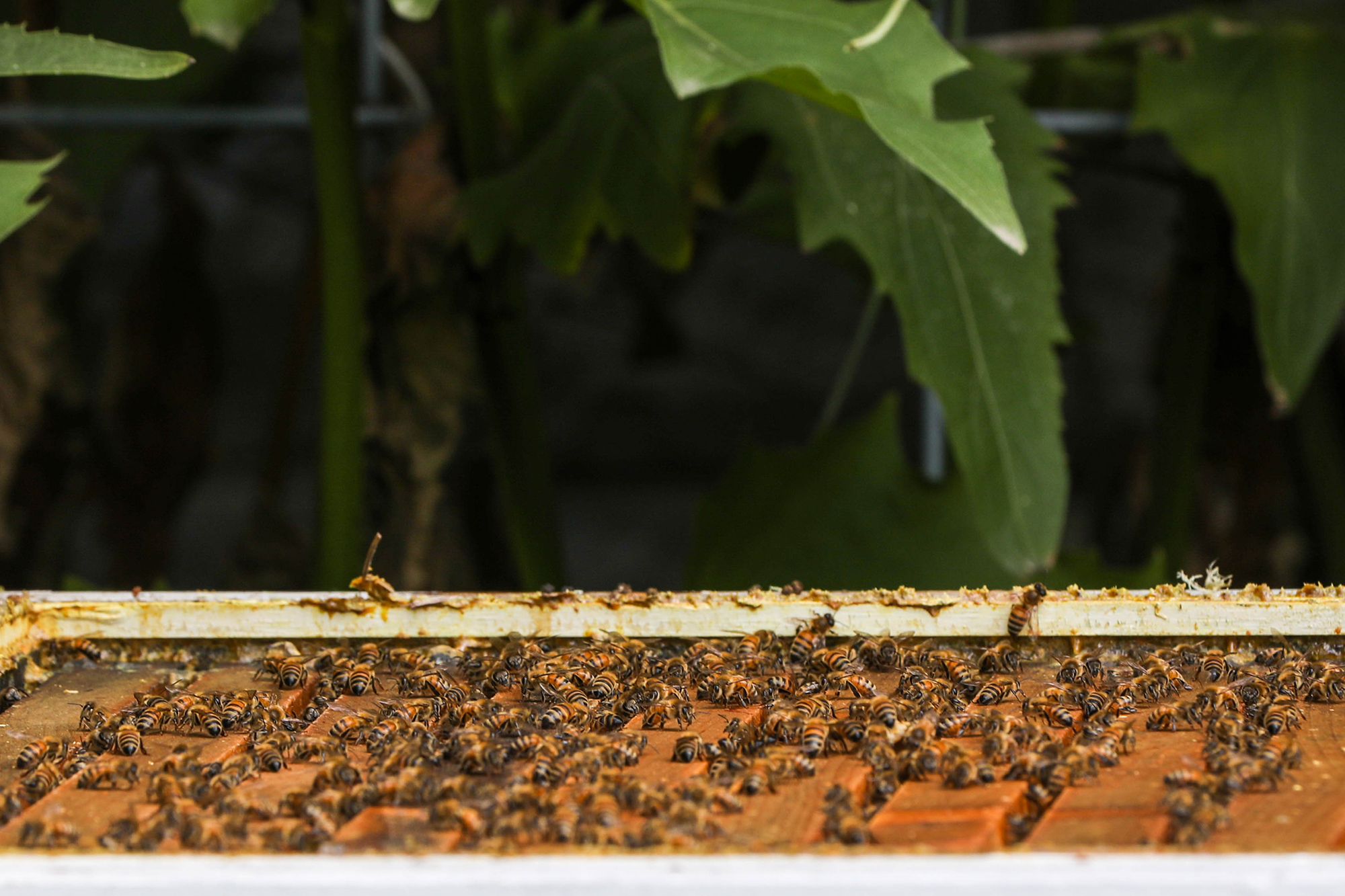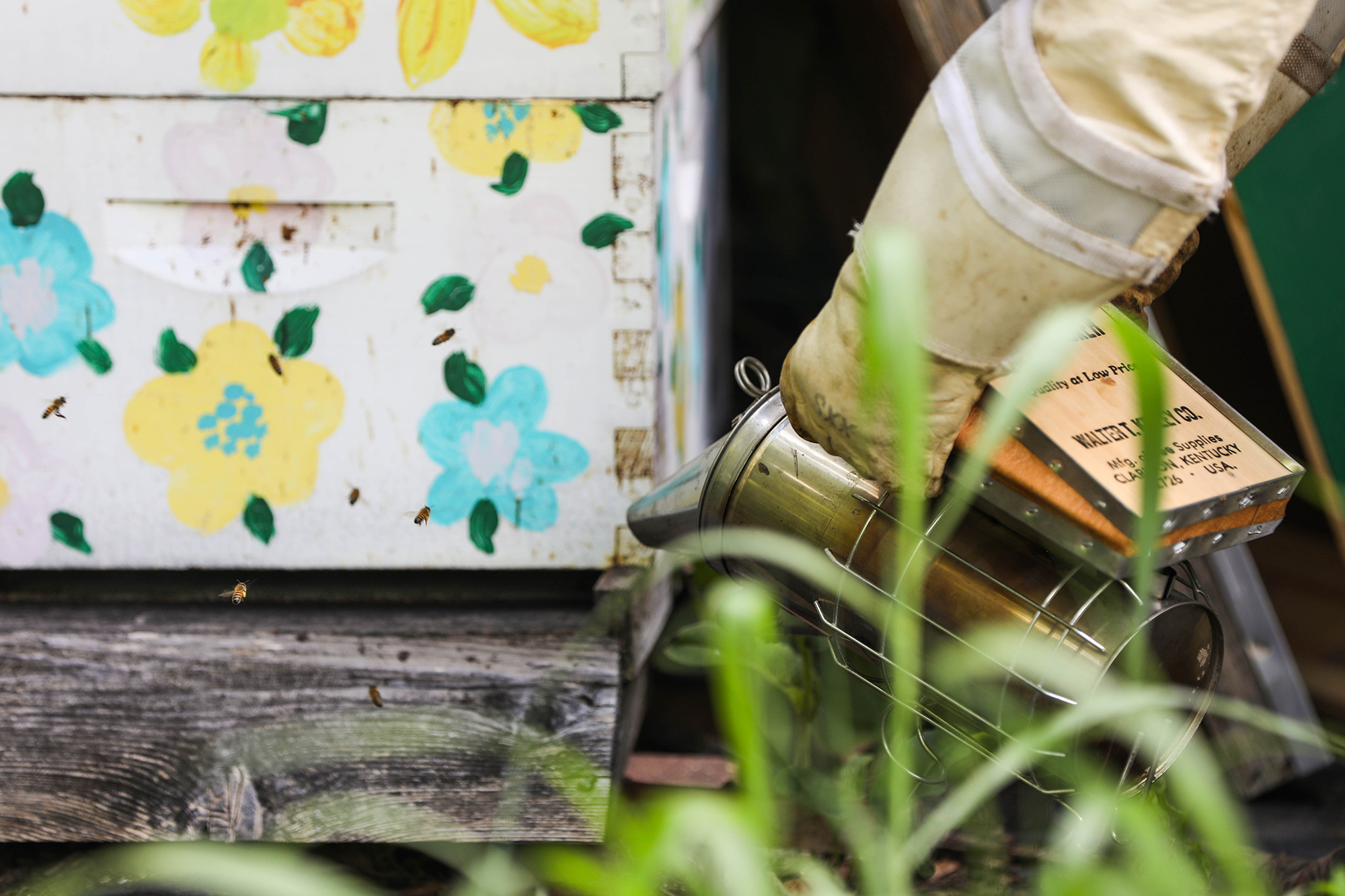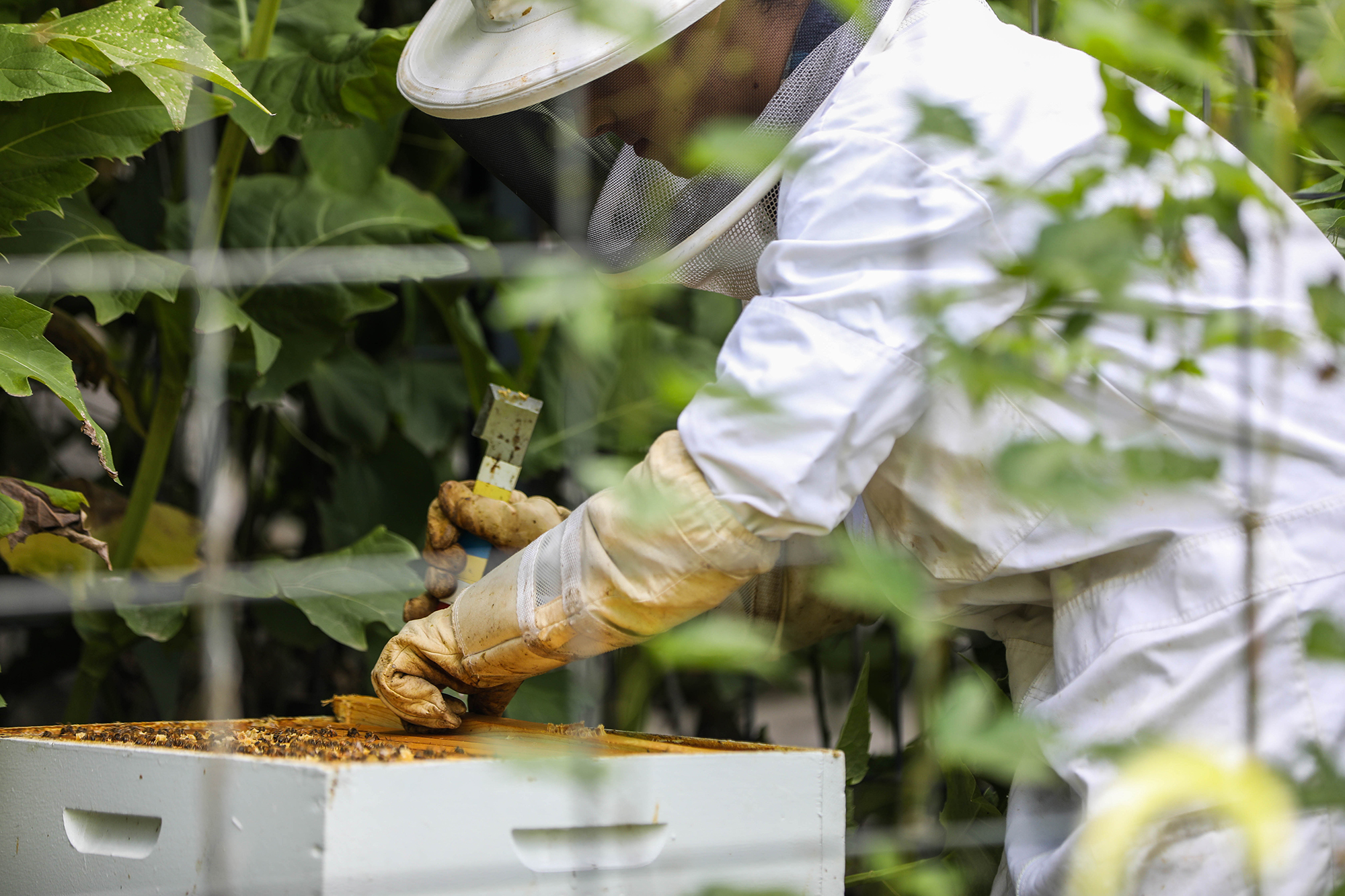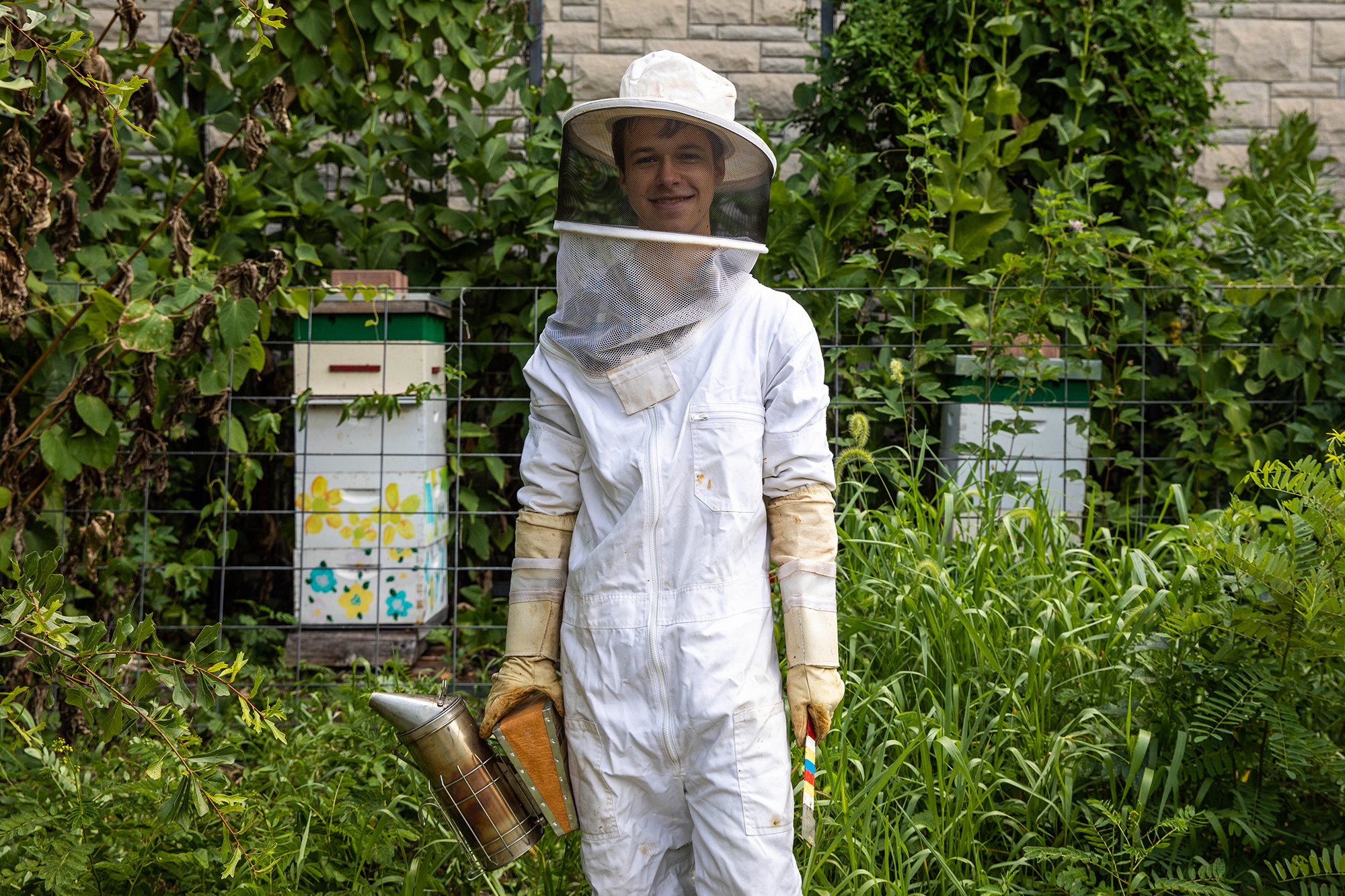Oct. 5, 2022
Contact: Deidra Ashley, ashleyde@missouri.edu
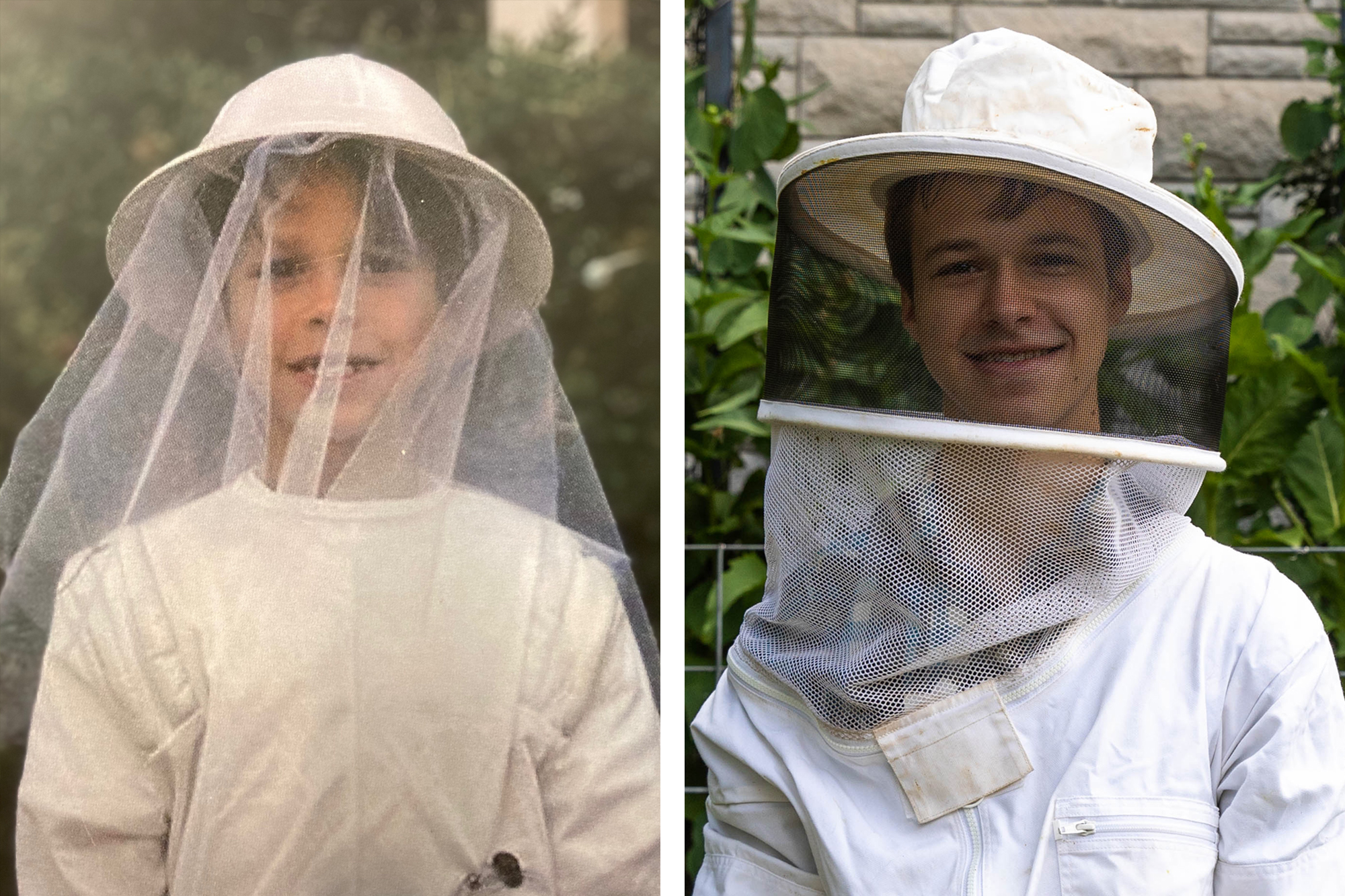
Most kindergarteners want to play tag, do arts and crafts or daydream about what they’ll be when they grow up. Five-year-old George Frees wanted to be a beekeeper.
“I found some books about bees in my school's library and read them all,” Frees said. “Then I went to the public library to read all of theirs, too.”
Frees begged his parents for bees. After hearing about it — almost daily for two years — they finally agreed to take the plunge. The family joined their local beekeeping group, the Midwestern Beekeepers Association, and learned the basics about keeping bees and getting started. Everyone pitched in to create the backyard beehives in their hometown of Harrisonville, Missouri.
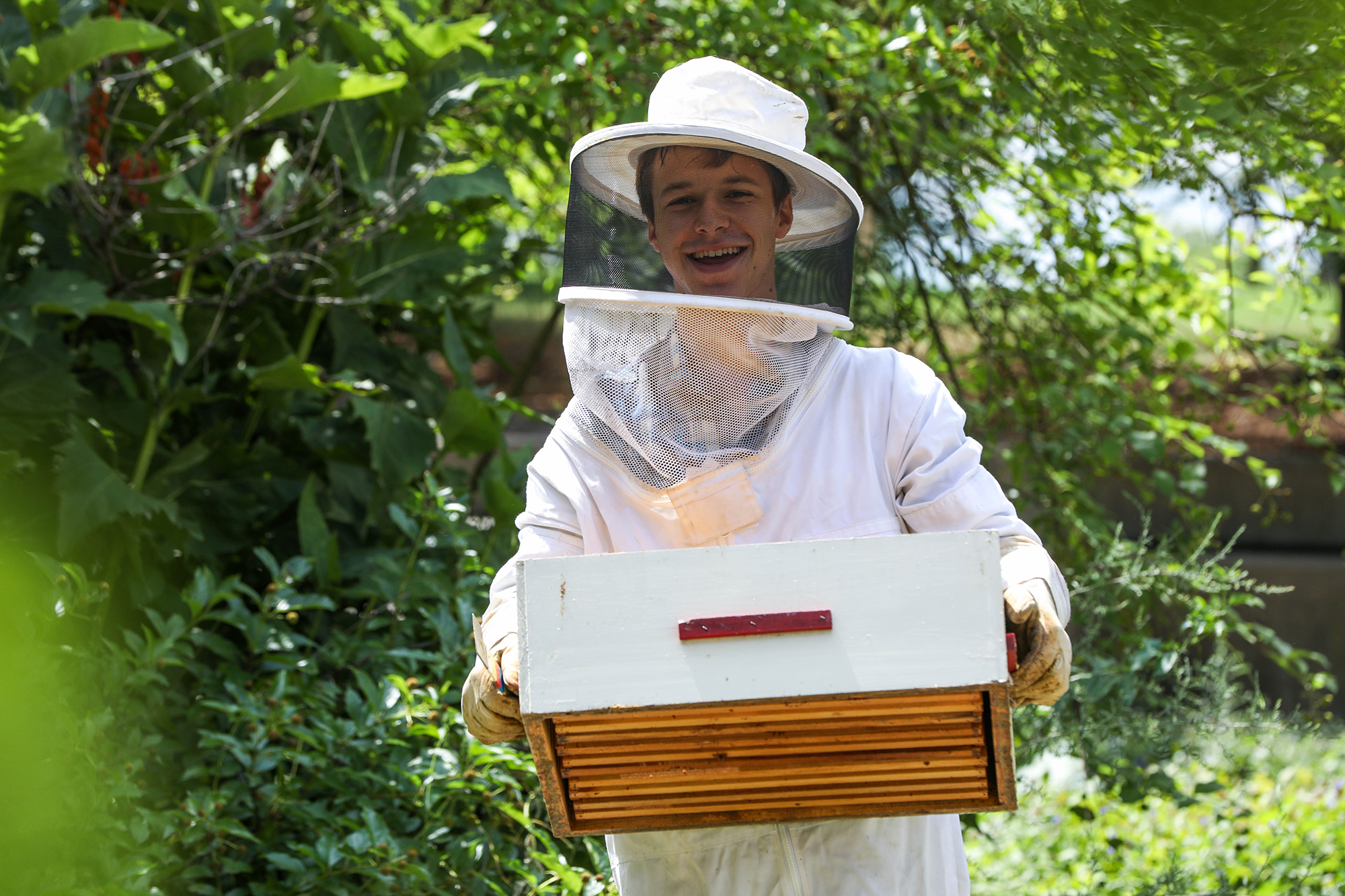
Busy bee
Frees’ decision to attend the University of Missouri was an easy one. His older brother, Henry, was the president of the beekeeping club on campus, and the younger Frees occasionally filled in — even as a high schooler.
“It was a pretty natural transition to start keeping the bees here and go to school at Mizzou,” Frees said. “I took over for Henry, which had been planned for a couple of years.”
With a packed double-major schedule — biochemistry and plant sciences — Frees appreciates the quiet respite spending time with his bees provides.
“Beekeeping is a really nice break from my studies,” Frees said. “When I get really busy, it's nice to just go and work with my hands around the bees. It's relaxing to sit there and watch them go about their jobs. It really helps me calm down and to put things into perspective.”
Keeping the bees happy and healthy is a campuswide goal, with efforts coming from Mizzou leadership, including Jim Spain, the vice provost for undergraduate studies.
“I try to help connect George to the people and resources here on campus who can help achieve the goals that he and other students have established,” Spain said, “George is a doer. He has established a vision for the group of students working with the bees.”
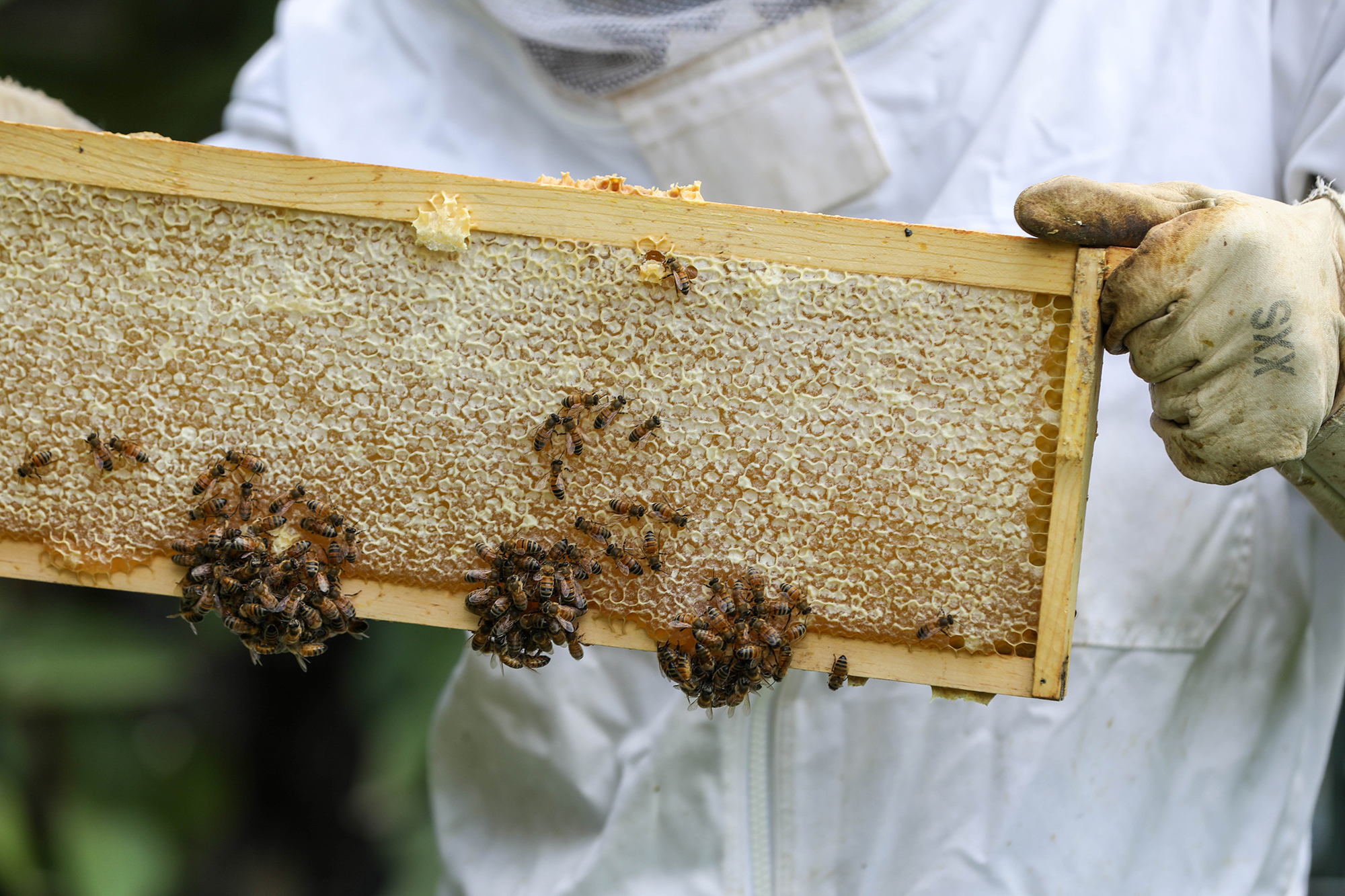
All the buzz
While Frees’ work with bees doesn’t scientifically have much to do with his ethnobotanical research — the study of how native people use medicinal plants to create pharmaceutical products — he finds that the two paths inspire one other.
“I want to find ways to help people while also helping the environment," Frees said. "The bees give me a reason to keep pushing. It’s a tangible way to see why I fight for the things that I do.”
Bees are an important part of every person’s life, whether they know it or not. The insects pollenate up to 80% of all flowering plants, including one-third of crop production. They also produce honey and beeswax used for consumption, cosmetics and medicine. For Frees, however, keeping bees is more than a passing thought or even a daily consideration. It’s a lifelong love.
“I want to always keep bees in my life,” Frees said. “I’m part of the Boone Regional Beekeepers Association and we do a lot of research. I want to continue doing research in beekeeping and help others to know more about bees and continue inspiring others to be beekeepers.”
